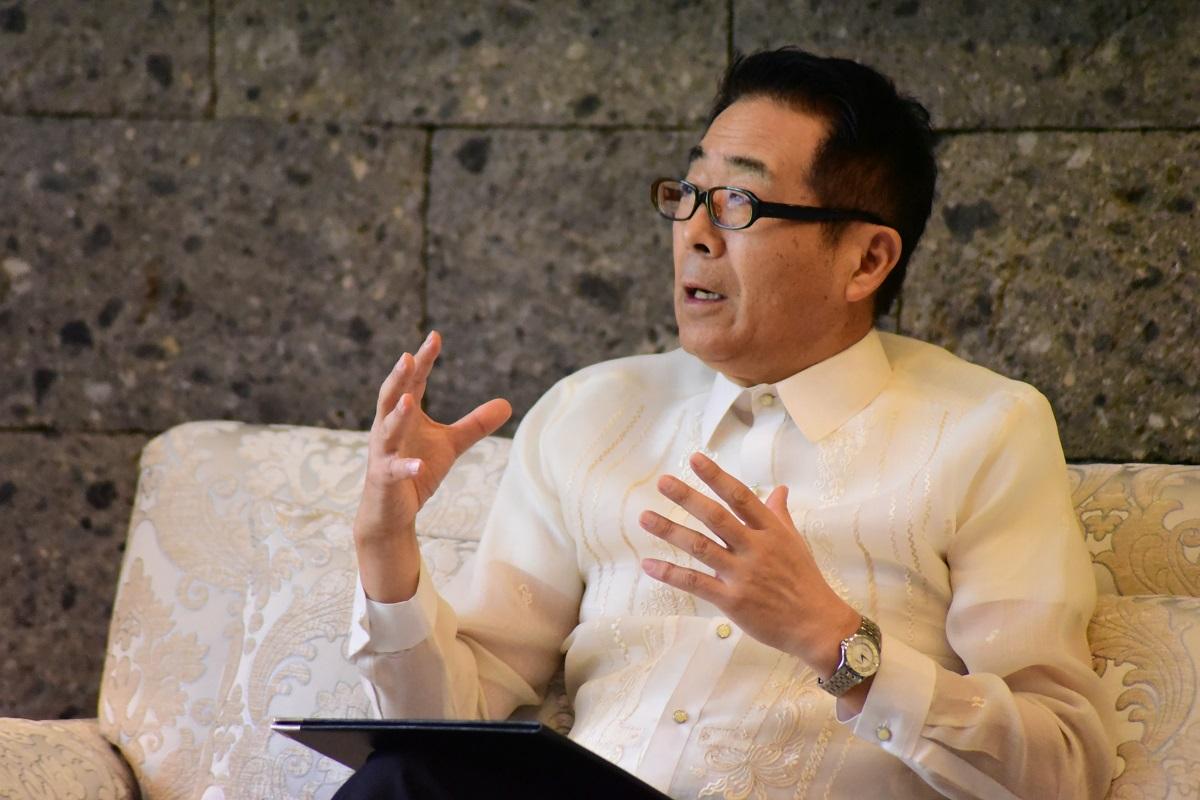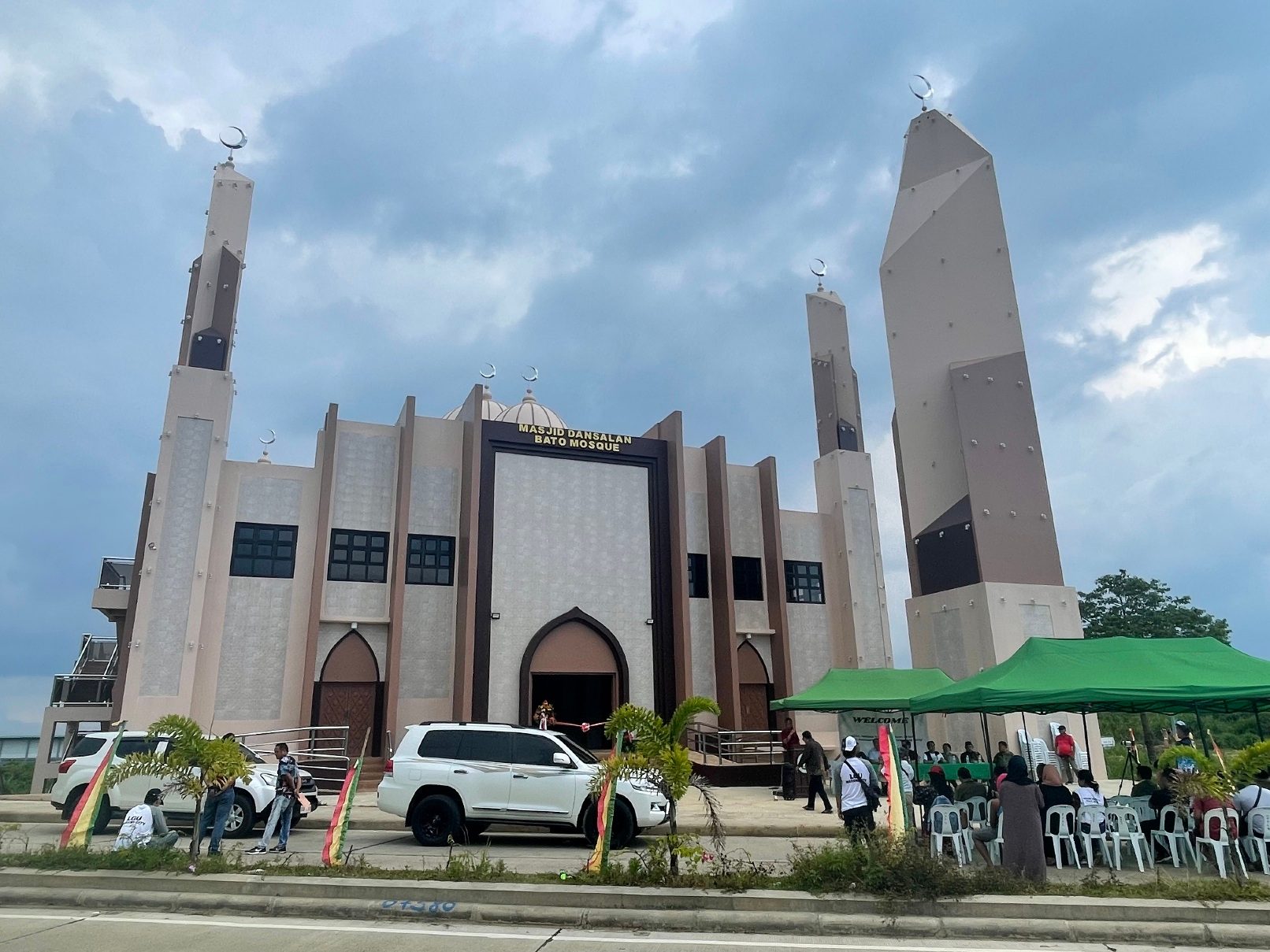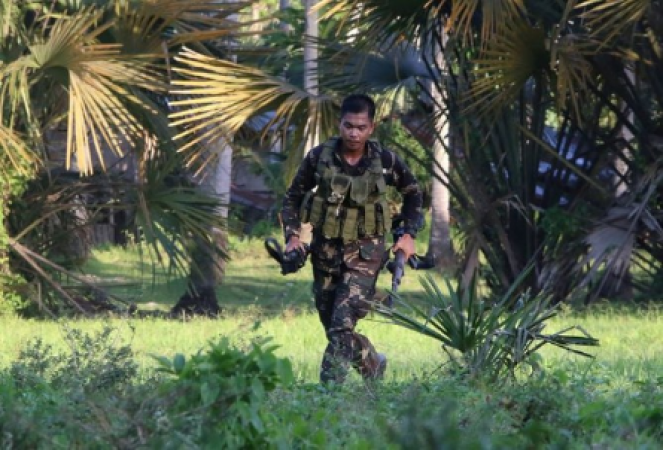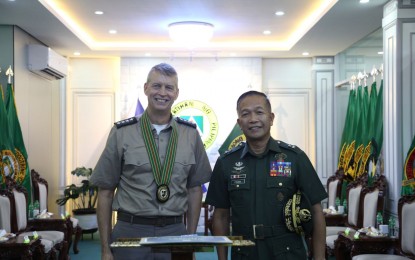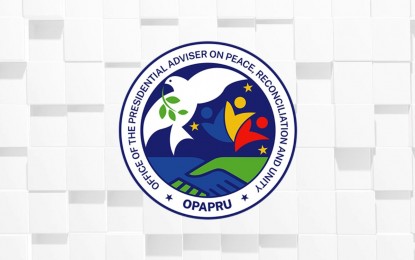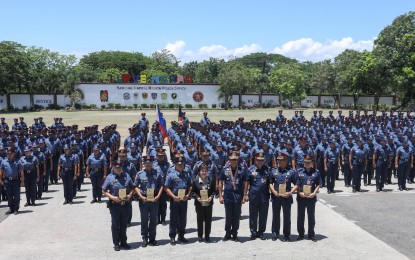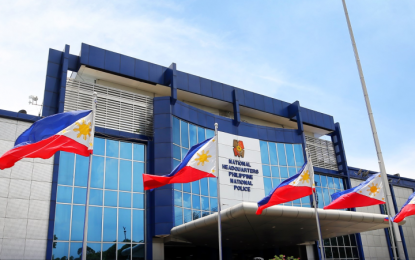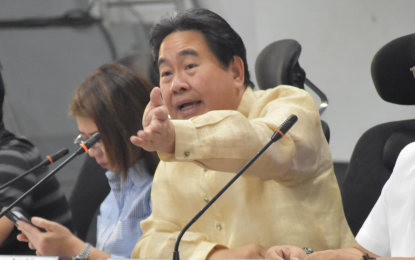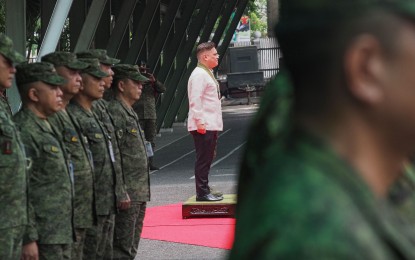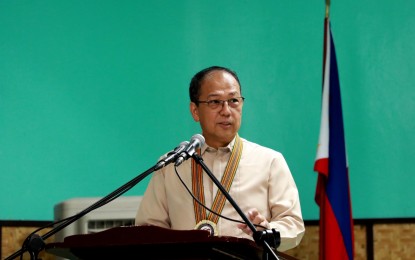apanese Ambassador Kazuhiko Koshikawa stresses a point during an exclusive interview with GMA News Online at his residence in Makati City. PHOTO COURTESY OF EMBASSY OF JAPANJapan and the Philippines are preparing to start preliminary consultations before commencing formal negotiations for a “reciprocal access agreement” — also known as Visiting Forces Agreement — to boost defense cooperation amid concerns over escalating tensions in the South China Sea, Japan’s top envoy to Manila said.
In a recent interview with GMA News Online, Japanese Ambassador Kazuhiko Koshikawa said without elaborating that both countries are "just about to start the consultation for negotiation for this issue because both sides are open to this issue."
"Consultation to start formal negotiations," Koshikawa said.
"I hope that in the near future, there will be a framework that will further enhance the defense cooperation between our two countries," he added, noting that such agreement is called the VFA in the Philippines.The VFA between the Philippines and the United States took effect in 1999 and now serves as a legal framework that allows American forces to visit the country temporarily for military exercises and provide humanitarian and disaster-response assistance. The 1987 Philippine Constitution prohibits foreign troops from establishing permanent military bases in the country.
Australia and the Philippines signed a similar accord in May 2007 called the Status of Visiting Forces Agreement (SOVFA), which they separately ratified later. The SOVFA has allowed joint training and exercises between Australian and Filipino forces in the country and more than 100 Australian military personnel took part in the largest US-Philippine “Balikatan” military exercises last April.
The details of a possible agreement to be negotiated by the Philippines and Japan remain to be seen. But such a pact will allow more Japanese forces to join annual military exercises involving the Philippines and the US, including the largescale “Balikatan” exercises, and allow Japanese forces to help provide humanitarian assistance faster in the future.
Japan Self-Defense Force officers joined the last “Balikatan” exercises as observers together with other observer delegations from Asia.
"Both the Philippines and Japan resolve to boost defense capabilities and further strengthen our overall security cooperation through strategic reciprocal port calls and aircraft visit, transfer of more equipment and technology and continuous cooperation on the previously transferred defense equipment and capacity-building activities,” Koshikawa said.
Diplomatic relations between Japan and the Philippines, which was established in 1956, have considerably strengthened over the years to become one of Manila’s most strategic and important in the field of economic, infrastructure, people-to-people and security cooperation.
While economic and people-to-people relations have been very robust, including Metro-Manila’s first-ever subway project, “our security cooperation has become an important pillar of our bilateral relations,” Koshikawa said.
Koshikawa disclosed other potential assistance by Japan to the Philippine Coast Guard, which the Philippine government has requested, including the construction of berthing or mooring facilities for the PCG’s modern fleet of Japanese-built vessels, which have been used to patrol the West Philippine Sea.
A crucial satellite communication system that will link Philippine Coast Guard vessels to the PCG headquarters is also in the pipeline, along with possibly more Japanese-built patrol vessels in the future, Koshikawa said.
While serving as Director-General in charge of Official Development Assistance in the Ministry of Foreign Affairs in Tokyo in 2011, Koshikawa said he helped oversee a major project that led to the turning over of 10 Japanese-built 44-meter multi-purpose vessels to the PCG. Two 97-meter patrol ships were also handed over by Japan to the Philippines, considerably boosting its coast guard capability to patrol and defend the country’s territorial waters and Exclusive Economic Zone, including in the West Philippines Sea.
"Japan is currently conducting feasibility studies on the facility such as PCG dedicated berth necessary for PCG’s functional activities," Koshikawa said.
"They need it. They have ten 44-meters and two 97-meters and maybe more patrol vessels in the future. I think the PCG this year should have their own berths or piers.”
Philippine President "Bongbong" Ferdinand Marcos Jr. traveled to Japan in February this year for a five-day official visit and held talks with Prime Minster Fumio Kishida and top Japanese officials. The two leaders agreed to further deepen their countries’ economic and defense ties.
Several agreements were signed, including the terms of reference on humanitarian assistance and disaster response activities between the Armed Forces of the Philippines and the Japan Self-Defense Force. The agreement would allow expanded exercises on jointly responding to natural disasters in the Philippines.

Marcos told reporters after his visit that Kishida briefly discussed the possibility of a possible “reciprocal access agreement.” He added that the Philippines is considering and studying such an accord.
"If it will be of help to the Philippines in terms of protecting, for example our fishermen, protecting our maritime territory ... I don't see why we should not adopt it," Marcos told reporters based on an official transcript. Philippine officials would have initial discussions with the Japanese Embassy in Manila, he said.
Before his visit to Japan, Marcos approved in early February four additional Philippine military bases where US forces and their defense equipment can temporarily station under the 2014 Enhanced Defense Cooperation Agreement (EDCA). Three of the new EDCA sites would be located in the northern province of Cagayan and Isabela and the fourth will be in Palawan province, which faces the disputed South China Sea.
China opposed the intensifying US military presence, saying it will allow American forces to intervene in the Taiwan Straits problem and the South China Sea territorial disputes and added the American military presence will endanger regional stability.
Relatedly, Japan announced its biggest defense capability buildup since World War II in December in a move partly fueled by concerns over China’s increasingly aggressive actions in the region.
Maintaining freedom of navigation and overflight and upholding the rule of law in the South China Sea is very strongly in Japan’s national interest and is of crucial importance too in the Indo-Pacific region, Koshikawa said.
Russia’s invasion of Ukraine was shaking “the very foundation of the international order,” Koshikawa said.
"In the South China Sea, neither international law, particularly the U.N. Convention on the Law of the Sea, nor the arbitration award rendered by the international tribunal under this very important convention in 2016 is being complied with," he said.
Similarly in the East China Sea, China has unilaterally attempted to change the status quo by force in violation of international law over the Senkaku islands, he said.
China claims the islands as its territory and refuses to recognize Japan’s claim to the uninhabited islands which the Japanese call Senkakus in Japanese and the Chinese call Diaoyu.
Beijing regularly sends Chinese coast guard vessels and planes into waters and airspace surrounding the islands to harass Japanese vessels in the area in actions that have forced Japan to scramble jets.
"Japan is taking a very firm stand against such attempt by China. We have a small island in the East China Sea, the Senkaku Island. On a daily basis, they are invading or intruding into our territorial waters, chasing Japanese fishing boat over there," Koshikawa said.
Along with the tensions in the East China Sea and the South China Sea, there have also been fears over the situation in the Taiwan Straits.
"These are essential and most serious underlying issues that Prime Minister Kishida expressed a strong concern or a sense of urgency that Ukraine today may be East Asia tomorrow," Koshikawa said.
"In the face of China’s unilateral action to change the status quo in the South China Sea, Japan has been working very closely with the Philippines and the Association of Southeast Asian Nations (ASEAN) members to realize a common commitment to freedom of navigation and overflight in the South China Sea," he said.
"We strongly support the rules-based approach of the Philippines and other ASEAN members in resolving competing claims in maritime areas within the framework of international law in particularly the UN Convention on the Law of the Sea, or UNCLOS."
"Japan has been assisting in the peace and stability for a free and open Indo-Pacific. This is very important and this is a legitimate concern for all the international community,” Koshikawa said, citing Japan’s decision to increase its defense budget, which shows “the special determination of the Japanese government to face this very difficult changing security environment in this region."
"We are not claiming any territorial claims on the islands but the South China Sea is of vital importance to Japan,” he said, adding Japan “depends on this very important sea lane for transportation of goods and resources and energies."
"We will be more proactive than ever in tackling these challenges and crisis confronting Japan, ASEAN and the world." —KBK, GMA Integrated News

